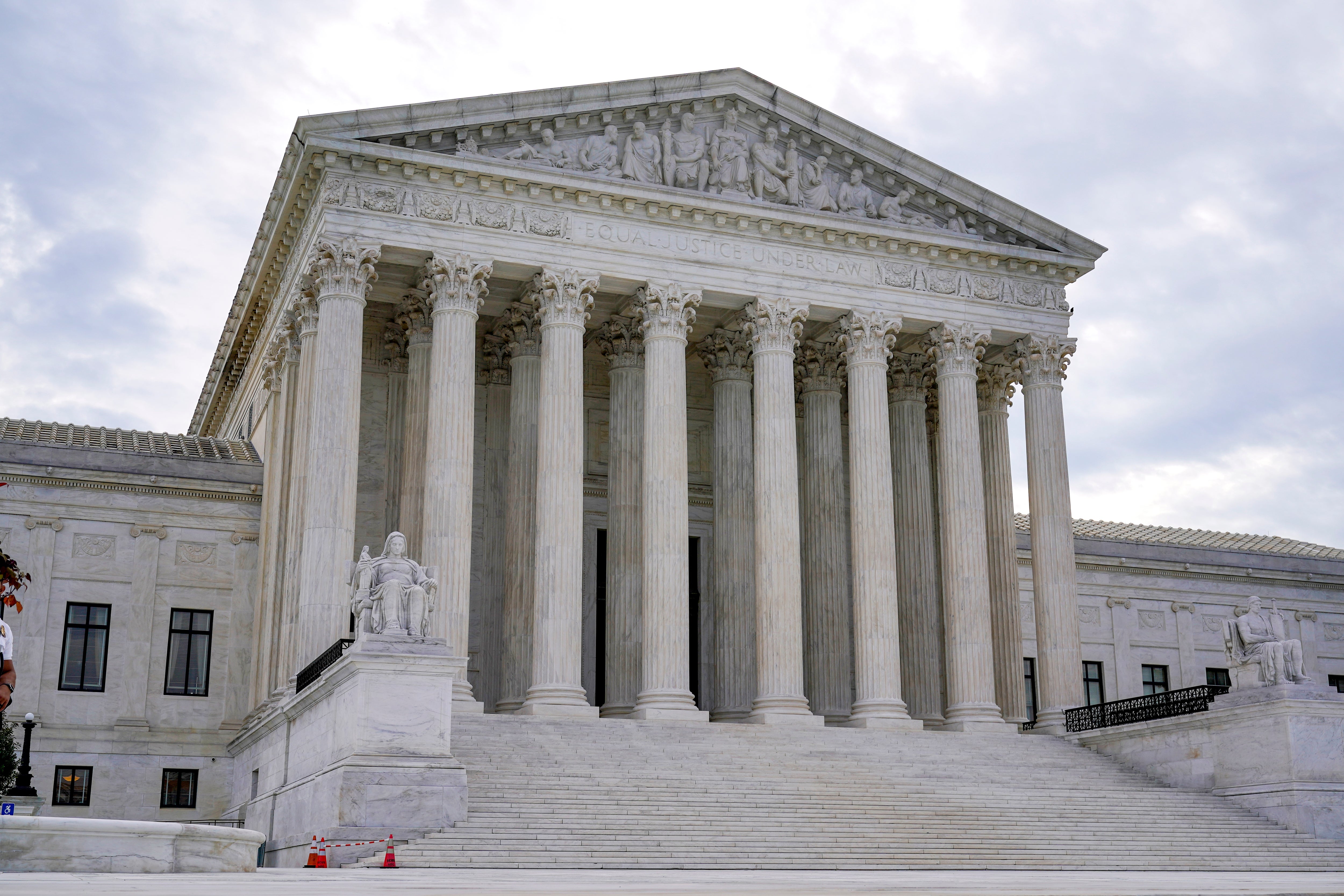Supreme Court commission talks positively of shorter terms
A commission tasked with studying potential changes to the Supreme Court is releasing a first look at its review

A commission tasked with studying potential changes to the Supreme Court released a first look Thursday night at its review, a draft report that is cautious in discussing proposals for expanding the court but also speaks approvingly of term limits for justices.
The 36-member bipartisan commission, largely composed of academics, has been studying court reform and holding hearings, but it was not charged with making recommendations under the White House order that created it. As a result, much of the some 200 pages of materials the commission released are history and context for reform proposals.
A final report from the committee, which next meets Friday, is expected in about a month and would go to the president then. Even when the commission does finish its work, however, any proposals for change would be met with serious political headwinds particularly with midterm elections looming and the chance that Democrats could lose control of Congress.
The commission's review was a campaign promise President Joe Biden made amid pressure from activists and Democrats to react after the court's composition tilted sharply to the right during President Donald Trump’s term.
Trump nominated three justices to the high court, giving it a 6-3 conservative majority. Democrats were especially frustrated that the Republican-led Senate kept former President Barack Obama from filling the seat left empty for months by the death of conservative Justice Antonin Scalia in 2016. Then, with Trump in office, the Senate pushed to confirm Justice Amy Coney Barrett to the court following the death of liberal Justice Ruth Bader Ginsburg weeks before the election.
That led to calls by some progressives for reforms including adding seats to the court or setting term limits.
For its part, the commission devoted a significant section of the materials it released to discussing term limits for the justices, who under the Constitution have life tenure. The commission described term limits as the proposal that appears to have “the most widespread and bipartisan support.”
It said a politically-diverse array of scholars have endorsed term limits and that a survey of literature on the subject by the commission “discovered few works arguing against term limits.”
The commission said that three current justices — Chief Justice John Roberts, Justice Stephen Breyer and Justice Elena Kagan — “have noted the potential benefits of term limits.” It also cited experts recommending an 18-year term limit for justices and said that term limits for state high court justices are common.
The report also notes that the United States is the “only major constitutional democracy in the world that has neither a retirement age nor a fixed term of years for its high court Justices.”
The commission said it was divided over whether Congress has the power to create the equivalent of term limits for justices by statute or if a constitutional amendment is required.
The commission's report was cautious in addressing proposals for increasing the size of the court. It noted increasing the court's size could create a more diverse court that could handle more cases. But it also noted that the “risks of Court expansion are considerable,” including to the court’s legitimacy.
The commission said most state high courts have fewer seats than the Supreme Court but that by global standards the Supreme Court is small, with France, Spain and Britain among the countries with larger high courts.
“Other countries have found ways to make a larger court workable,” the commission said, while noting that: “We should be cautious about assuming, however, that the U.S. Supreme Court could easily follow the lead of its international analogues.”
Congress originally set the size of the court at six members. The size has been nine since 1869.
With the commission wrapping up its work, calls for action from Congress and the president could increase. During the presidential campaign Biden repeatedly sidestepped questions on expanding the court, and he hasn't said if he supports adding seats or making other changes including imposing term limits. White House press secretary Jen Psaki had said he would not weigh in about the size of the court until the commission finished its work.
A number of groups are closely watching what the committee produces. Brian Fallon, executive director of the progressive court group Demand Justice, called the draft report “not even close to being worth the wait,” arguing that the “paralysis-by-analysis reflected here is exactly what you would expect from a commission made up mostly of academics.” He said the commission's purpose was simply to "buy time for the Biden administration while it fights other legislative battles.”
But Alliance for Justice President Rakim Brooks said in a statement that the “report will help raise awareness that reform is not only possible, but necessary.” And Gabe Roth of the group Fix the Court said in a statement that the “draft highlights the benefits of several popular Supreme Court reforms, including term limits, that would rebuild trust in an institution who's public esteem has recently cratered.”
The panel is being led by Bob Bauer, who served as White House counsel for former President Barack Obama, and Cristina Rodriguez, a Yale Law School professor who served in the Office of Legal Counsel for Obama.
___
Associated Press reporter Jonathan Lemire contributed to this report.
Bookmark popover
Removed from bookmarks